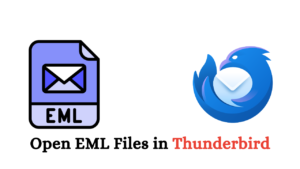Buying a home is one of the most significant investments in anyone’s life, and choosing the right mortgage can be overwhelming. When it comes to selecting a mortgage, there are two primary options: fixed-rate mortgages and adjustable-rate mortgages (ARMs). While both have their advantages and disadvantages, which one is best for you? In this blog post, we’ll discuss the pros and cons of fixed vs. adjustable rate mortgages so you can make an informed decision that suits your financial goals. Whether you’re a first-time homebuyer or looking to refinance your existing mortgage, read on to learn more about these two popular types of home loans!
What is a fixed rate mortgage?
A fixed-rate mortgage is a type of home loan where the interest rate remains constant throughout the loan’s life. This means that your monthly payment will remain the same, making it easier to budget and plan for your expenses.
One significant advantage of a fixed-rate mortgage is stability. You’ll know how much you need to pay each month, which can help you avoid any surprises or financial setbacks caused by fluctuating interest rates.
Another benefit of fixed-rate mortgages is their simplicity. They’re easy to understand since there are no complicated terms or conditions attached.
However, one disadvantage of a fixed-rate mortgage is that they tend to have higher initial interest rates than adjustable-rate mortgages (ARMs). If you plan on staying in your home for only a short period, an ARM might be more suitable since its introductory rate could be lower than a fixed rate.
If stability and predictability are vital factors when choosing a mortgage, then a fixed-rate mortgage may be the right choice for you.
What is an adjustable rate mortgage?
An adjustable rate mortgage (ARM) is a type of home loan where the interest rate can fluctuate over time based on market conditions. The initial interest rate for an ARM is typically lower than that of a fixed-rate mortgage, making it an attractive option for those looking to save money on their monthly payments.
With an ARM, the interest rate is determined by adding a margin to an index such as the London Interbank Offered Rate (LIBOR). This means that if the index goes up or down, your interest rate will follow suit. Most ARMs have caps on how much your interest rate can adjust each year and over the life of the loan.
One advantage of an ARM is that if rates are expected to go down in the future, you could end up paying less in overall interest compared to a fixed-rate mortgage. However, there’s also more risk involved with this type of loan since your payments could increase significantly if rates rise.
It’s important to carefully consider your financial situation and long-term goals before deciding whether or not an adjustable-rate mortgage is right for you. If you plan on staying in your home for only a few years or feel comfortable taking some risk with fluctuations in interest rates, then selecting this option may be worth considering.
Pros and cons of fixed rate mortgages
Fixed rate mortgages are a popular choice for many homebuyers. This type of mortgage has an interest rate that remains the same throughout the life of the loan, providing borrowers with consistency and stability in their monthly payments.
One advantage of a fixed rate mortgage is that it offers predictability. Borrowers know exactly what their monthly payment will be, which makes budgeting easier. Additionally, fixed rates provide protection against rising interest rates, so if rates go up, borrowers won’t see their monthly payment increase.
However, there are also some drawbacks to fixed rate mortgages. One major disadvantage is that they typically have higher interest rates than adjustable rate mortgages (ARMs). The borrower pays for the security and certainty provided by a fixed-rate loan through higher upfront costs and possibly even over time via larger cumulative payments.
Another downside to a fixed-rate mortgage is lack of flexibility; once you’ve signed your contract locking in your interest rate at today’s market value or slightly above or below it – that’s it! If interests decrease substantially in future years you may find yourself stuck with relatively high repayments compared to others who took out variable-rate loans instead.
Whether a borrower chooses a fixed or adjustable rate mortgage depends on individual circumstances such as financial goals and risk tolerance. It’s best to weigh all options carefully before making any decisions when taking out your next home loan!
Pros and cons of adjustable rate mortgages
Adjustable rate mortgages (ARMs) are home loans where the interest rates can change over time. ARMs typically have lower initial interest rates compared to fixed-rate mortgages. However, these rates can increase or decrease after a predetermined period.
One of the most significant advantages of adjustable rate mortgages is their lower initial interest rates. This means that borrowers will enjoy smaller monthly payments initially, which can be attractive for those looking to save money at the start of their mortgage term.
Another advantage is that ARM loans often come with more flexible terms than fixed-rate options. For instance, some ARMs let you pay off your loan early without incurring prepayment penalties.
The biggest disadvantage of an adjustable rate mortgage is that its interest rate can rise drastically during periods of economic uncertainty and market volatility. This could result in significantly higher monthly payments for borrowers who may not have budgeted for such increases.
Moreover, because there’s no way to predict future changes in market conditions accurately or how they’ll impact your ARM loan, it makes planning and budgeting challenging.
While adjustable rate mortgages offer lower initial payments and more flexibility than fixed-rate options, they also carry added risks due to fluctuating market conditions over time. It’s essential to weigh up both pros and cons before deciding whether an ARM loan suits your needs and financial situation.
When to choose a fixed rate mortgage
If you are looking for a consistent and predictable mortgage payment, then a fixed rate mortgage might be the right choice for you. With a fixed rate mortgage, your interest rate stays the same throughout the life of your loan. This means that your monthly payments will remain unchanged as well.
One situation when choosing a fixed rate mortgage makes sense is if you plan on staying in your home long-term. If you know that this will be your forever home, then having a set monthly payment can help with budgeting and financial planning.
Another reason to choose a fixed rate mortgage over an adjustable one is if interest rates are currently low but expected to rise in the future. By locking in at today’s lower interest rates, you can save money over time compared to an adjustable rate where the interest could increase unpredictably.
If you prefer stability and dislike surprises or uncertainty, then choosing a fixed rate mortgage provides peace of mind knowing exactly how much money goes towards paying off principal versus paying off higher-interest charges each month.
When to choose an adjustable rate mortgage
When it comes to choosing between a fixed or adjustable rate mortgage, an adjustable rate mortgage (ARM) may be the right choice for some borrowers. Here are some situations in which an ARM might make sense:
Firstly, if you plan on selling your home within a few years. With an ARM, you’ll typically have a lower interest rate for the first few years of your loan term, giving you lower monthly payments and more cash flow. This can be beneficial especially for those who don’t intend to stay in their homes long-term.
Secondly, if you believe that interest rates will decrease in the near future. If this is the case, then choosing an ARM can help you take advantage of falling interest rates without having to refinance your entire mortgage.
Thirdly, if your income is expected to increase significantly over time. As your income grows, so does your ability to manage higher mortgage payments which will occur as soon as the introductory period ends.
However it’s worth noting that ARMs come with risks – mainly that after the initial low-interest-rate period expires their rates can fluctuate dramatically increasing risk associated with borrowing money from lenders and lead many people into debt traps.
Conclusion
Choosing between a fixed and adjustable rate mortgage depends on your personal financial goals and situation. If you value stability and predictability in your finances, then a fixed rate mortgage may be the better choice for you. On the other hand, if you are comfortable with some level of risk and believe that interest rates will remain low or decrease over time, an adjustable rate mortgage could save you money in the long run.
Ultimately, it is important to carefully evaluate both options before making a decision. Consider factors such as your income stability, how long you plan to stay in your home, current market conditions, and overall financial strategy.
By understanding the pros and cons of each type of mortgage loan, you can make an informed decision that aligns with your unique needs and goals. Whether it’s a fixed or adjustable rate mortgage – remember that homeownership is one of life’s biggest investments – choose wisely!
People also search for Personal Loan in West Bengal, You can visit our official West Bengal branch: https://goo.gl/maps/i7Vzey786dJAuP5i7








